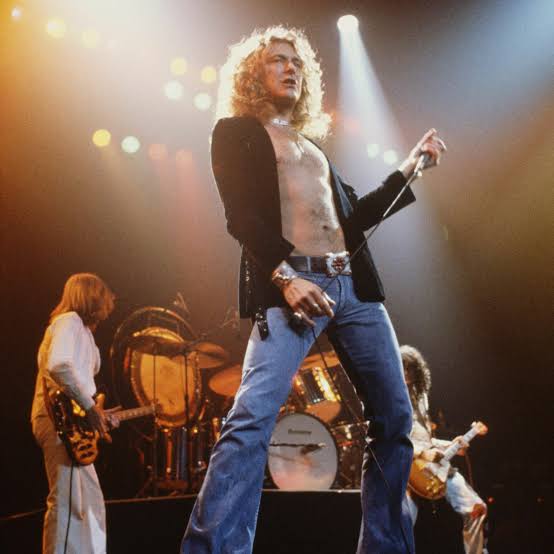On July 24, 1977, Led Zeppelin took the stage at the Oakland Coliseum in California for what would ultimately be their final performance on American soil. The atmosphere was electric, charged with the anticipation of over 50,000 fans who had come to witness rock royalty in action. As the sun dipped behind the stadium, the band launched into their set, their powerful sound instantly engulfing the massive venue.
Jimmy Page, dressed in his iconic black silk dragon suit, became the center of attention. With a Les Paul slung low, he unleashed blistering solos that echoed through the coliseum, his fingers a blur of motion. Each note seemed to burn with intensity, a mix of bluesy soul and raw energy that defined the Zeppelin sound. Robert Plant’s vocals soared above the music, golden curls bouncing as he prowled the stage, while John Paul Jones anchored the band with his deep bass lines and keyboard flourishes. Behind them, John Bonham pounded the drums with thunderous precision, his playing both chaotic and controlled.
Despite the brilliance of the performance, the show was shadowed by tension. The band had been shaken by off-stage altercations and mounting personal pressures, and the tour itself had been marred by controversy. Yet onstage, they remained a force of nature. Tracks like “Kashmir” and “Stairway to Heaven” held the audience in rapture, a final reminder of Zeppelin’s raw, unrelenting power.
As the final chords rang out and the band took their bows, few could have known this would be the last time Led Zeppelin played a full concert in the U.S. That night in Oakland marked the end of an era—an unforgettable farewell from a band that had forever altered the landscape of rock and roll.










